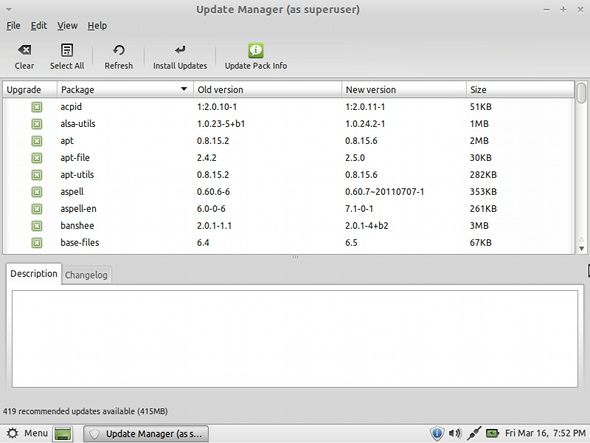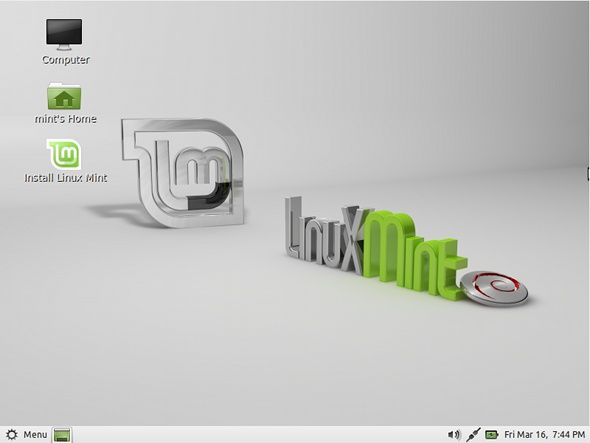During recent years, many people have touted the ease of use that comes with Linux Mint compared to virtually all other distributions. As such, Linux Mint is now one of the most popular distributions out there, and almost as popular (or in some terms more popular) than Ubuntu. With so many users, the Mint developers have been experimenting with a version of Linux Mint based on Debian direct.
As the regular version of Linux Mint is based on changes in Ubuntu (check out our guide here), which is in turn based on changes in Debian, the alternative version dubbed "Linux Mint Debian Edition", or LMDE for short, would be directly dependent on changes in Debian only, and would cut out the middle man and let the Mint developers have more say in the direction of their distribution.
That being said, is it worthwhile to use LMDE? What are the differences, advantages, and disadvantages in using LMDE?
Keep On Rolling
One of the biggest perks about LMDE that most common users won't even notice until much later is the fact that LMDE is a rolling release distribution. A rolling release distribution is simply one that doesn't have concrete releases, but instead just continually updates itself through package updates. Everyone who runs LMDE is running the same "release", and as long as they keep up with their updates they will all be running the latest software.
This is because LMDE gets most of its packages from Debian's testing repository, which continually updates itself and adopts the rolling release concept as well. The different ISO images that are on the Linux Mint website for LMDE are only occasional updates of the installation media so that people who install LMDE much later won't have to download and install a billion updates.
Additionally, Update Packs help ease the transition of very large updates, say from GNOME 2 to GNOME 3.
Long story short, this means that you won't have to upgrade from release to release or even reinstall your system each time a new release comes out. You simply install it, keep up with the updates, and you can technically run that one installation for many years.
Is It Linux Mint, Or Is It Linux Mint?
Another benefit to LMDE is that it provides virtually the same experience as the regular Linux Mint releases. There is hardly any difference between the two, so using either one shouldn't be an issue.
The developers do mention that there may be some roughness in certain areas, but now that the LMDE project has existed for at least a year, there have been many updates since then. People who have used Linux Mint for a while should feel right at home.
Wait, Ubuntu Did That For Me?
There are a few downsides, however, that come with LMDE which have varying levels of impact, depending on your needs. Although Debian and Ubuntu both use .deb files for their packages, they aren't always binary compatible, so if you have a lot of favorite packages that are Ubuntu-only and not for Debian, then they will not run in LMDE. Additionally, a few extra Ubuntu perks such as the PPA system are not included in LMDE as well (as they contain Ubuntu-only packages anyway), so if you heavily depend on that feature, LMDE may not be very suitable for you.
Conclusion
All in all, LMDE is a very attractive option for a lot of users to use or simply try out. Getting the system reliability that Debian offers along with the rolling release concept may be a better alternative for some people over traditional distributions, while still getting the look, ease of use, and productivity of a traditional distribution. Whether you know it'll work for you or not, go ahead and try it out. You might be surprised.
What do you think about LMDE? Are traditional releases or a rolling release better? Should Linux Mint stay with its Ubuntu base or switch to Debian? Let us know in the comments!



